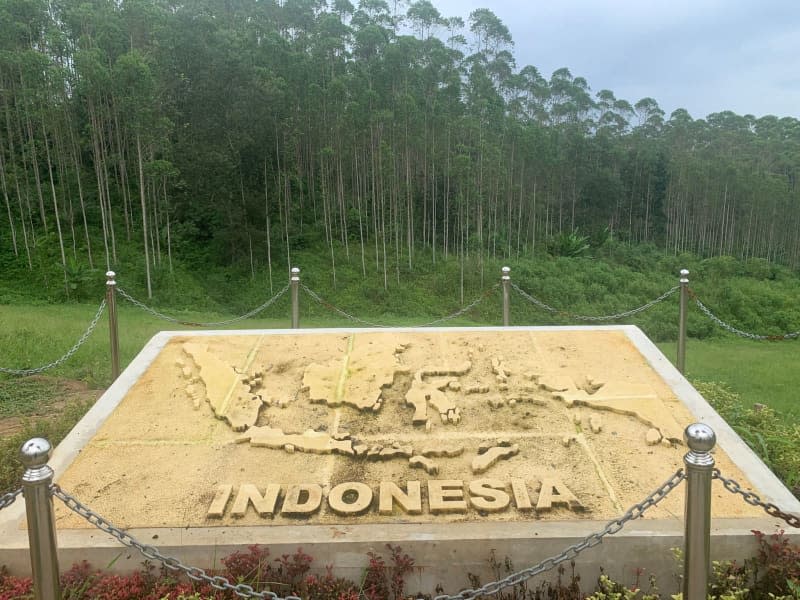Indonesia’s futuristic dream for its new capital, Nusantara, took a step closer to reality with the successful test flight of a flying car prototype.
The prototype successfully completed a 10-minute test flight on July 30, performing a figure-eight manoeuvre at 50 km per hour and an altitude of 50 metres at the airport in Samarinda, about 100 kilometres from Nusantara, Indonesia’s new capital still under construction.
“Indonesia’s unique geography and rapid urbanization make it an ideal testing ground for urban air mobility solutions,” said said Cheol-ung Kim, a executive in charge of urban air mobility business development Hyundai Motor Group. “We’re committed to collaborating with the Indonesian government and industry to make this vision a reality.”
The flying taxis, equipped with distributed electric propulsion and multiple rotors, can take off and land vertically, eliminating the need for long runways, officials said. They are also designed to be quieter than helicopters, reducing noise pollution in urban areas.
While the technology is still in its early stages, the Indonesian government is optimistic about its potential to transform transportation in the archipelago nation.
Nusantara, located on the island of Borneo, is being designed as a smart and sustainable city, and flying taxis are seen as a key part of that vision.
Muhammad Ali Berawi, deputy for green and digital transformation at the Nusantara Capital City Authority, hailed the test as a significant milestone.
“Nusantara is designed as a living laboratory for innovation, and this successful test flight is a testament to our commitment to cutting-edge technologies like urban air mobility,” he said.
Outgoing President Joko Widodo, popularly known as Jokowi, unveiled plans in 2019 to establish a new capital. As he nears the end of his presidency this October, after a decade in power, the relocation of the capital to Nusantara stands as his signature initiative.
Critics, however, have raised concerns over the accelerated timeline for developing the new site, suggesting that it may be more about cementing Jokowi’s political legacy than practical urban planning.
Nusantara, expected to be completed by 2045, is designed to be a sprawling metropolis, home to approximately 1.9 million people across 260,000 hectares.
Jokowi plans to spend an increasing amount of time in the new capital, according to his aides, so officials are working diligently to ensure that essential infrastructure is in place.
Also, in a break from tradition, this year’s Independence Day ceremony in mid-August was held in Nusantara, alongside celebrations in Jakarta, marking a new chapter in the nation’s history.
Jokowi led a flag-raising ceremony, along with President-elect Prabowo Subianto, who is due to assume office in October.
Jokowi said he experienced a restless first night at the presidential palace in Nusantara.
“I didn’t sleep well, to be frank with you,” he told reporters, attributing the unease to the novelty of the situation.
Despite this, he said he was prepared for busy days ahead.
“Today I have started receiving officials for meetings here, in the president’s office.”
As he met with other officials, thousands of workers were working tireless to finish essential infrastructure in the new city, including hospitals, the airport, housing for civil servants and schools.
“I don’t want to disrupt their work,” he said.
Jokowi said essential services such as water, electricity, and internet connectivity were working well.
“This is a big job. It can take 10, 15, 20 years. This is not a job that takes one or two years,” he said
He also praised the unique topography of Nusantara, which offers a stark contrast to Jakarta’s flat landscape.
But not everyone is happy with the new capital project.
Alpian, a resident of Pemaluan village, is one of many individuals grappling with the impact of the Nusantara capital project. His ancestral land has been taken over for road construction without compensation.
“The land was handed down from my parents to me,” Alpian said. “It’s not just me who has been affected, there are others who have lost their land as well.”
He said that promises of payment have not been fulfilled, leaving him in a state of uncertainty.
“They said this land will be paid for, this land is still being processed, but it’s been a year, the process is very long, right?” Alpian said, expressing his frustration with the lack of transparency and the slow pace of resolution.
He also raised concerns about the government’s handling of the project, accusing them of prioritizing industrial interests over the rights of local residents.
“It is as if we are being colonized,” he said.









